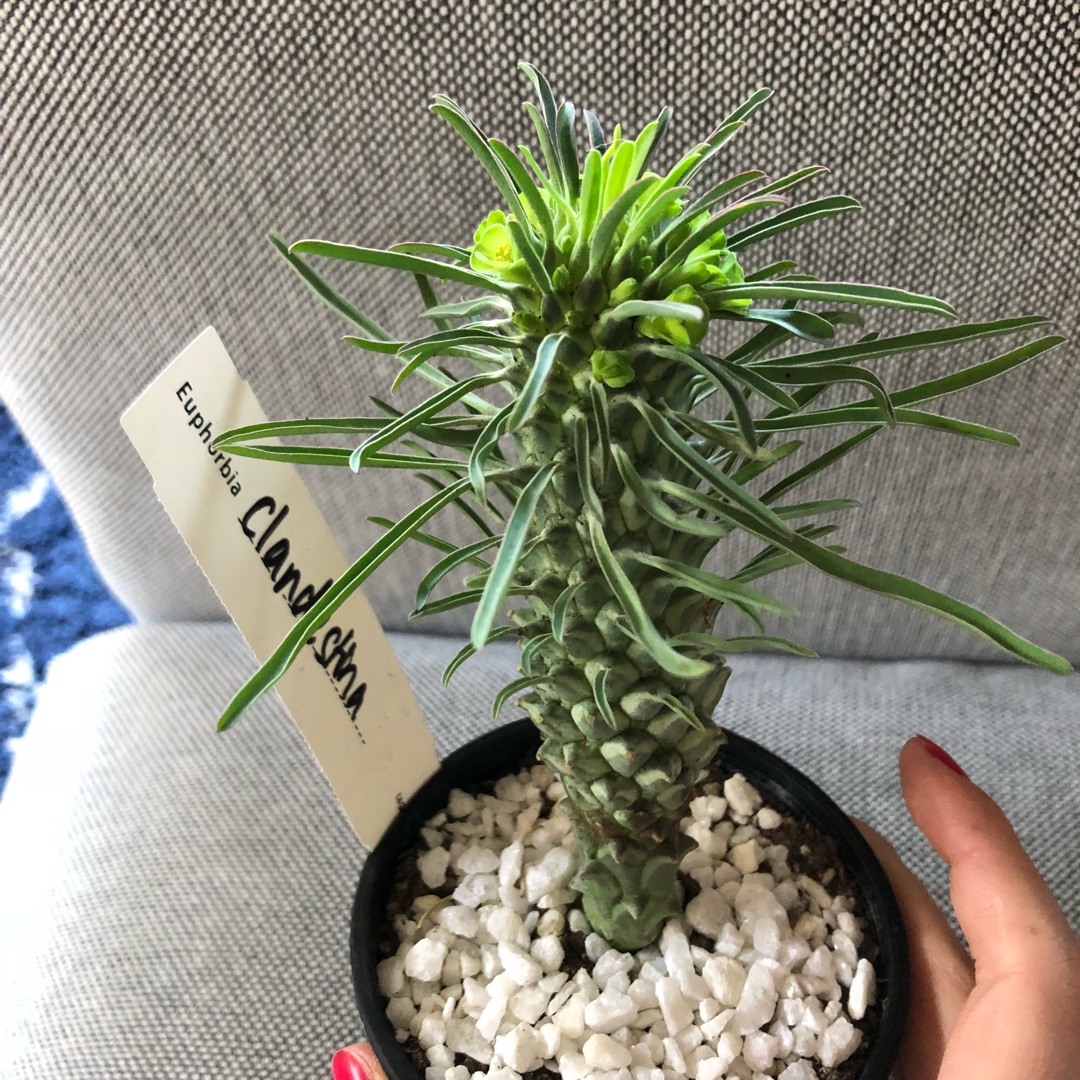
Euphorbia clandestina
Volstruisnek
Euphorbia clandestine is an erect spineless succulent, with a 2-4cm thick stem growing to 60cm tall with a loose spiral arrangement of knobby tubercules and topped with a tuft of coloured leaves that are hairy. The green stems can turn a reddish hue in winter and in spring it produces small flowers with red tinged green bracts that form at the tip of the stems between the tubercules. Euphorbia succulent varieties are easy to grow and are suited to any well drained soil in full sun. They grow well when there is a layer of brick and charcoal pieces, on top of which sandy loam soil is spread. They need little maintenance. Young plant are happy growing indoors.
Contributed by @yougrowgirl
-
Full sun
-
Very little water
-
A little frost hardy: 32F (0°C)
-
Light and free draining
Common name
Volstruisnek
Latin name
Euphorbia clandestina
type
Succulent
family
Euphorbiaceae
ph
5.0 - 7.0 Acid - Neutral
Plant & bloom calendar
-
Best time to plant
full grown dimensions
 0.05 M
0.60 M
0.05 M
0.60 M
Euphorbia clandestina
Euphorbia clandestine is an erect spineless succulent, with a 2-4cm thick stem growing to 60cm tall with a loose spiral arrangement of knobby tubercules and topped with a tuft of coloured leaves that are hairy. The green stems can turn a reddish hue in winter and in spring it produces small flowers with red tinged green bracts that form at the tip of the stems between the tubercules. Euphorbia succulent varieties are easy to grow and are suited to any well drained soil in full sun. They grow well when there is a layer of brick and charcoal pieces, on top of which sandy loam soil is spread. They need little maintenance. Young plant are happy growing indoors.
Propagation
From Early Spring TO Late Winter
The most common form of propagation for succulents is called vegetative propagation. This involves cuttings, where several inches of stem with leaves are cut, allowed some time to heal and after healing produce a callus. After a week or so, roots should grow. Another method is division which involves uprooting an overgrown clump and pulling the stems and roots apart. The easiest method is to allow the formation of a callus from a leaf or segment.
Planting
From Early Spring TO Early Spring
Succulents need good draining soil. When planting in the garden, make sure the area drains well and is not in a hollow that remains wet. Specially prepared cactus soil can be purchased for planting in pots or incorporate sand, gravel or volcanic rock for better drainage. The container you are planting in should have a drainage hole and it is wise to put crushed rock at the bottom before your planting medium.














